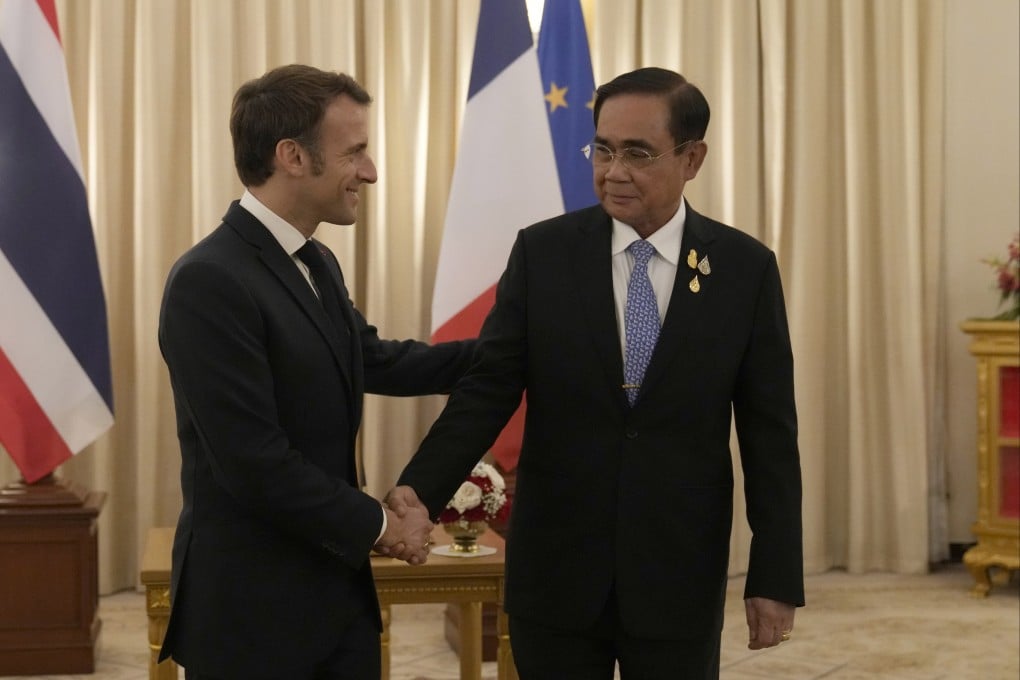Thailand’s Prayuth Chan-ocha revels in Apec limelight but domestic troubles lie in wait
- Thai premier and former army chief Prayuth Chan-ocha, who seized power in a 2014 coup, is welcoming global leaders for Apec meeting
- Once it’s over, though, his future looks gloomy as elections loom against backdrop of authoritarianism, inequality, mismanagement

The Apec summit hands Thai premier Prayuth Chan-ocha a rare global platform as he prepares to welcome Xi Jinping, Kamala Harris and Saudi Crown Prince Mohammed bin Salman to Bangkok, but experts say domestic turmoil awaits him once the dignitaries depart.
Signs of discontent with his eight-year stint in office were visible throughout Thursday as riot police with shields scuffled with clusters of pro-democracy protesters a few hundred metres from the summit venue in downtown Bangkok.
Prayuth seized power in a coup in 2014 when he was army chief, later reinventing himself as a civilian premier. But his popularity has plummeted with political opponents accusing him of presiding over an era of deepening authoritarianism, mismanaging the economy and governing on behalf of the elite in one of Asia’s most unequal societies.
“Prayuth has been pitching this Apec as a way of political survival,” said Thitinan Pongsudhirak, professor and director of the Institute of Security and International Studies at Bangkok’s Chulalongkorn University’s Faculty of Political Science. “Once it is over, reality will set in.”
The Asia-Pacific Economic Cooperation forum is the last stop in a procession of Asian summits which have taken in Cambodia and Bali and been dominated by the broad geopolitical brush strokes of US-China rivalry and Russia’s invasion of Ukraine.
Apec will seek agreement among its 21 members on a shift to green growth as the region seeks to shake off the economic malaise kick-started by the Covid-19 pandemic and Russia’s attack on its neighbour.